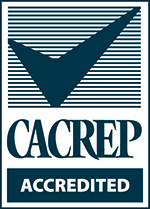New Cohort Forming in Fall 2028
Counseling (Ed.D) has a cohort every three years, with the next cohort beginning Fall of 2028.
Anticipated start of August 2028. Application will open Summer 2027, and close February 2028. Presentation will occur in April 2028.
CACREP-Accredited
For over fifty years, Shippensburg’s Department of Counselor Education has delivered world-class accredited master’s-level counseling programs. Our doctoral program aligns with the most contemporary vision of the counseling profession. Our faculty offer students a wealth of clinical experience and academic approaches, including substantial expertise in supervision.
Program objectives include:
- Leading students to assume leadership and advocacy roles in the profession of counseling across a broad range of professional specializations and settings.
- Utilizing the most current, ethical, and innovative technologies for supervision, counseling and education.
- Emphasizing contemporary competencies in all aspects of professional practice with the overarching goal of mitigating social injustices and inequities.
- Preparing advanced professionals to offer exceptional clinical supervision for counselors and student affairs professionals at all stages of their development.
- Generating new insights and developing innovative approaches in clinical supervision.
- Consulting with their academic advisor, students design a multi-disciplinary "cognate" focus to distinguish their academic program.
- Increasing the knowledge base of the counseling profession in both physical and virtual scholarly environments.
- Preparing a doctoral-level community of practitioner/scholars to create and disseminate results of scholarly practice and research.

Programs from the Department of Counselor Education are nationally accredited by the Council for Accreditation of Counseling and Related Educational Programs
Admissions Requirements
In addition to the application and transcript(s), applicants to programs within the Department of Counselor Education must submit:
- Resume
- Three (3) recommendations
- References should come from current or former instructors/professors, current or former university staff-members (e.g. Dean of students), or employment supervisors.
- If you have been out of school for an extended time and those university faculty and staff who you would ask are now retired, obtain a recommendation from a current or former work supervisor.
- Related Experience Form
- We would like to hear about all your experiences (paid or volunteer), particularly as your experience relates to the counseling concentration for which you are applying. Form is located within the online application.
- Counseling Autobiographical Statement
- Length: Not to exceed five (5) pages (double‐spaced; 12‐point font)
- Content: We would like to know something about who you are, why you are interested in this degree, what you plan to do with this degree and what pieces of your life you would like to grow.
- Format: In five pages or less, you are to produce an autobiographical statement that gives us a sense of you (past, present and future). Please include each of the following construct areas as major headings in your paper:
- Why are you pursuing this degree?
- How do you plan to use this degree in the future?
- What will you bring to the program (personally and/or professionally)?
- Describe your characteristics that make you effective in working with people.
- Describe your characteristics that you feel you need to develop to work more effectively with people.
- How do you best learn complexities of the world; especially those that contradict previous knowledge?
- Describe personal/professional experiences with individuals who differ from you in regard to race, ethnicity, culture, gender, gender identity, gender expression, sex, sexual orientation, religion or spiritual beliefs.
- NOTE: It is both wise and critical that you distinguish your responses to each of the prompts above by using examples and specific information. General statements, e.g., I am a really good listener, that are not supported by specific examples will detract from your overall application evaluation.
- Evaluation: We are using your autobiographical statement to assess both your match with the program/field and your writing skills. Pay attention to style, grammar, punctuation, wording and flow.
- Upload the statement through your online application portal.
School Counseling applicants are required per PA Department of Education requirements to have a 3.0 cumulative GPA at the time of application. If your current GPA is below 3.0, please consider applying for an alternate specialization within the Department of Counselor Education. Once your cumulative GPA rises above a 3.0, students can then transfer into the School Counseling track.
Take the Next Step
Course Work for Counselor Education and Supervision, EdD
Shippensburg University’s CACREP Accredited doctorate in counselor education is designed to provide professional counselors with the advanced knowledge, skills, and abilities to successfully design and develop clinical and administrative programs, teach at the graduate level, and provide clinical supervision in a variety of practice settings. Our doctoral program is uniquely designed to prepare career professionals to provide clinical supervision, engage in program development and enhancement, and deliver advanced clinical practice. Clinical supervision is a cornerstone in the training and development of ethical and competent professional counselors. For complete course descriptions, visit the catalog. A minimum of 60 credits is required to graduate.
The EdD in Counselor Education and Supervision (EdD CES) builds upon a minimum requisite 60-credit master’s degree in counseling. Approved background includes, but is not limited to: clinical mental health counseling, K-12 school counseling, college counseling, family and marriage therapy, and college student personnel.
This professional doctoral program is designed as a cohort:
- Doctoral students take all core courses, practicum, and internships together over a three-year period.
- Core courses are offered on Saturdays*.
- Most students are able to work full or part-time while earning their doctoral degree.
- Additional semesters are expected to complete and defend dissertation research and complete the degree.
- Classes are face-to-face with online components.
- Professional relationships, service, and leadership are fostered throughout the program.
* Cognate courses may be offered at alternate times based on students’ choice of courses.

